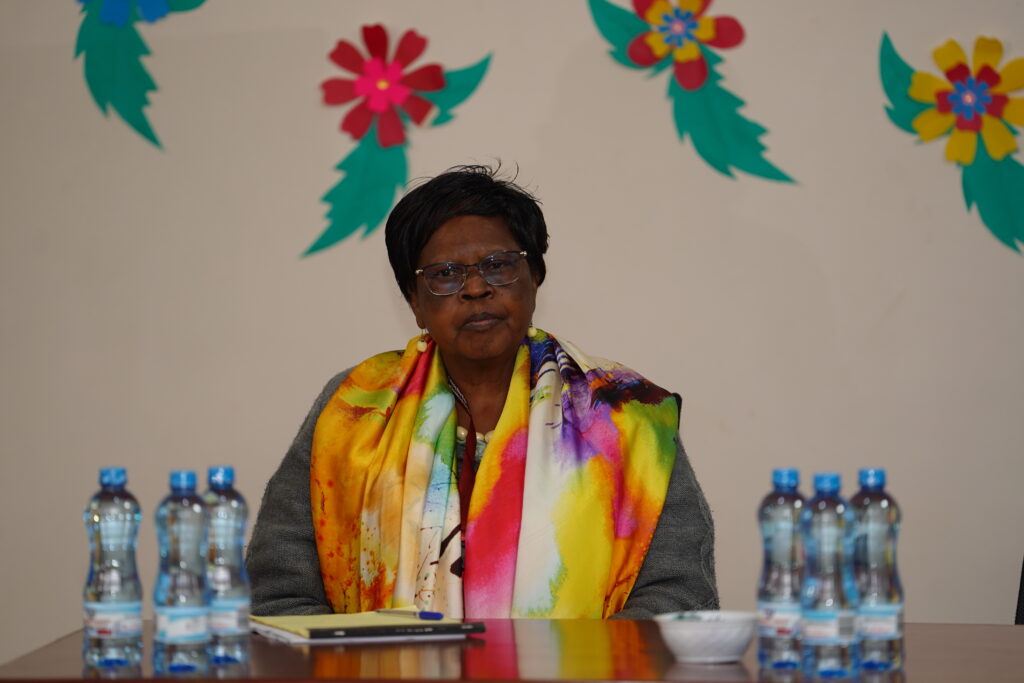
Prof. Philomena Mwaura, an Associate Prof at the department of Philosophy and Religious studies and a former director of the Center for Gender Equality and Empowerment at Kenyatta University, in Nairobi Kenya, the Keynote speaker for the opening ceremony addressed the topic Women, Servant Leadership in a Synodal Church, Emerging Ecclesiologies for the 21st Century. She began by acknowledging the progress women have made globally and in the Church over the last decades, stepping beyond domestic roles into leadership in politics, business, and activism.
According to Prof. Mwaura, women are the backbone of the Church in Africa as they are often involved in countless ministries and services. She noted that despite this, their equality and leadership remain limited by structural and theological barriers. In her speech, Prof Mwaura explored the women’s roles and leadership in the Catholic Church, obstacles to achieving equality and full human dignity for women, what a synodal, inclusive Church embracing women’s gifts might look like, and what new ecclesiologies could transform Church practice
She listed three distinct roles or responsibilities associated with women in the Church today. She noted that women are highly visible in parishes, small Christian communities, catechism, liturgical services, and charitable activities; they are actively involved in the church associations like the Catholic Women’s Association and sodalities provide spiritual, social, and economic networks that empower women and support evangelization; finally, women religious (nuns) embody missionary service, often in the most marginalized contexts, making the Church visible and credible.
Regrettably, Prof. Mwaura reiterated that despite this involvement, women remain excluded from decision-making and hierarchical structures that shape the Church’s mission and policies. The reason for this is structural barriers which includes Patriarchy & Gender Stereotypes. She noted that the Church continues to reflect patriarchal structures inherited from ancient cultural and theological traditions (Hebrew, Greek, Roman). These reinforce male hierarchies and exclude women from full participation, particularly in ordained ministry and strategic decision-making. On the other hand she explained that gender stereotyping perpetuates ideas of women’s inferiority, undermining equality even where progress is acknowledged.
According to the Don, official Church teaching & developments are slowly providing hope for a change. For instance, she pointed out that the Church’s official stance has evolved as seen in Vatican II, which affirmed women’s dignity and rejected discrimination. She mentioned that heads of the Catholic Church who include Popes John XXIII, Paul VI, John Paul II, Benedict XVI, and Francis have progressively acknowledged women’s increasing public roles, calling for their broader participation in Church life. For instance, Pope Francis’s reforms (e.g., Spiritus Domini, lay ministries of lector, acolyte, and catechist open to women) represent incremental steps toward inclusion although decision-making power, ordination, and central governance remain male-dominated.
In her speech, she also highlights servant leadership as a model more aligned with the Gospel and better suited for a synodal Church—a Church that listens, includes, and collaborates. She called for reimagining leadership away from hierarchical and patriarchal norms toward egalitarian, inclusive models where all baptized persons’ gifts are recognized. Additionally, she argued that the Church must move beyond simply integrating women into male-defined structures. Instead, it must create new patterns of ministry rooted in equality, mutual respect, and shared discipleship.
She called for a Church that embodies justice and equality in its structures, language, and leadership through recognition of women not only as servants of the Church but as co-creators of its mission and the transformation of theological and cultural assumptions that sustain patriarchy, enabling the Church in Africa (and globally) to better witness to the Gospel in a world marked by gender injustice, violence, and inequality.
By Pamela Adinda, HUC Communications Department Coordinator
